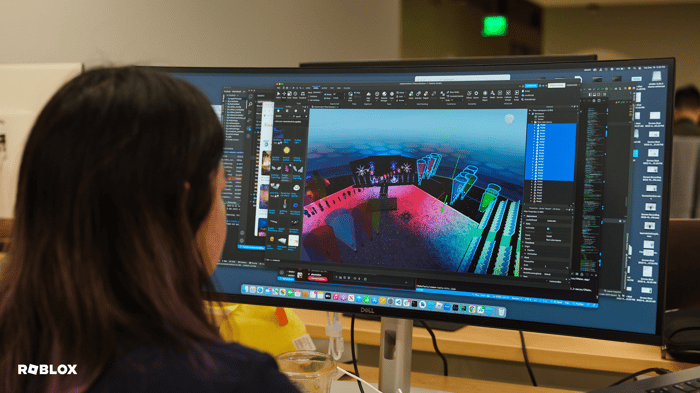Apple Considers AI Search Amid Declining Safari Usage
In recent developments, Apple is exploring the integration of AI into its search functions, signaling a shift that could challenge major tech companies.
This week, Apple executive Eddy Cue shared insights during the Justice Department’s antitrust case against Google’s parent company, Alphabet. Cue stated that Apple is “actively looking at” implementing AI as a search alternative.
According to reports, a pivotal reason for this shift is reflected in the numbers; search activities on Apple’s Safari browser experienced a decline last month for the first time. Cue attributed this decrease to users increasingly utilizing AI tools, as noted by Bloomberg News. Google reportedly pays approximately $20 billion each year to remain the default search engine on Safari.
Following Cue’s testimony, Alphabet’s shares dropped 8% on Wednesday, highlighting concerns about the potential impact of AI on its search dominance.
While numerous discussions about AI’s role as a disruptor in various industries, including tech, have emerged, another significant aspect is coming to light this week.
Many predictions portray AI as transforming the American workforce. Microsoft founder Bill Gates recently forecasted that advancements in AI could make human involvement in many tasks minimal in the near future. However, that reality remains a work in progress.
A January survey by Pew Research found that only about 16% of American workers are currently using AI in their jobs, while 63% reported limited to no AI integration in their work. Additionally, 17% indicated they had not heard of AI being applied in their workplace.
This suggests that while AI is on the horizon, widespread adaptation is still a ways off.
The Unstoppable AI Shift
While headlines about AI’s potentials generate excitement, the Pew Research findings indicate that we are far from widespread adoption of AI technologies.
Investors like Ray Dalio, founder of Bridgewater Associates, have cautioned about a potential “AI bubble,” likening it to the dot-com bubble burst. Similarly, Jeremy Grantham, co-founder of GMO LLC, has suggested the likelihood of an eventual “deflation.”
While these outcomes are plausible, one truth stands clear: the traditional economy is gradually giving way to an AI-driven landscape.
Investors will need to adapt or risk becoming obsolete.
Investment expert Louis Navellier emphasizes this notion in his communications to Growth Investor subscribers.
At the time of ChatGPT’s initial launch, its capabilities were limited to existing training data, which dated back to September 2021. Furthermore, it often generated inaccurate information, a phenomenon we now refer to as AI “hallucinations.”
Despite these limitations, it quickly drew over 1 million users within the first five days.
As of March 2023, GPT-4 emerged, demonstrating remarkable skills, such as passing the bar exam with a score in the 90th percentile, and outperforming medical students in assessments.
The acceleration of AI technology continues, leading us to what I term the Economic Singularity.
This denotes a critical point where AI renders the majority of human labor economically irrelevant.
Readers of the Digest know that Louis employs data-driven methodologies to pinpoint superior investment opportunities backed by institutional interest.
An example of this approach is reflected in the earnings report from AppLovin Corporation (APP) released this week.
This company targets over 1 billion mobile gamers, operating an AI platform specializing in targeted advertising.
Notably, their platform has also expanded into sectors such as e-commerce, fintech, healthcare, and entertainment.
AppLovin reported impressive earnings this week. Louis highlighted in Growth Investor:
Shares of AppLovin Corporation (APP) surged last Thursday following a strong earnings report for the first quarter. Revenue climbed 40% year-over-year to $1.48 billion, surpassing estimates of $1.38 billion. Advertising revenue alone jumped 71% year-over-year to $1.16 billion.
Additionally, first-quarter earnings soared 144% year-over-year, totaling $576.42 million or $1.67 per share, compared to $236.18 million or $0.67 per share during the same period last year. Adjusted earnings per share were reported at $2.38, exceeding expectations of $1.96 per share, resulting in a notable 21.4% earnings surprise.
Emerging Opportunities Beyond Tech Stocks
On Thursday, Bloomberg reported on the growing need for data centers that support AI in areas struggling with water scarcity.
These data centers require substantial water resources for cooling and energy generation, a challenge in regions where water is limited.
Even prior to the launch of ChatGPT in late 2022, local communities expressed concerns about data centers consuming millions of gallons of water daily in areas already facing shortages. This issue has intensified as AI demand surged post-ChatGPT.
According to an analysis from the World Resources Institute and market research firm DC Byte, over 160 AI data centers have been established in the U.S. in the last three years, representing a 70% increase from the previous three-year span.
The report outlines how tech companies are beginning to address these logistical challenges while acknowledging that demand for data centers will continue to rise.
This trend highlights investment opportunities that extend beyond data center construction, as identifying future economic needs remains vital for successful investors.
# Exploring Investment Opportunities in Water Solutions Amid AI Growth
Understanding investment strategies typically involves looking at unique perspectives in emerging markets. One interesting angle is the ongoing influence of technology on industries that may not seem directly related at first glance.
## The Historical Lens: Levi Strauss and Modern Markets
For instance, during the California Gold Rush, it wasn’t the miners who became most prosperous, but Levi Strauss, who sold them durable pants necessary for their endeavors. This historical reference serves as a reminder of how some businesses can thrive indirectly from broader trends.
## Eric’s Focus on Water Management in Tech
Currently, in the booming AI sector, investor Eric is not targeting the usual semiconductor companies. Instead, he is taking a deeper approach, examining essential resources, like water, that support server farms. Recently, he identified a significant opportunity in the water handling sector.
### Insights from Eric Fry’s Report
In his New Manhattan Project report, Eric highlighted the potential of water management businesses. He points out that these companies can benefit from both emerging and established technologies.
Eric’s focus includes Aris Water Solutions Inc. (ARIS). He elaborates on the company’s strengths:
ARIS is becoming a leader in the water handling sector for the oil and gas industry. The company has built a substantial water infrastructure in the Delaware Basin of West Texas.
They also have the necessary permits in place for significant operational expansion, leading to notable earnings growth.
The company’s growth potential is further bolstered by the projected “data center alley” in West Texas, where tech firms require large volumes of water for cooling. ARIS’s advanced water treatment capabilities position it well to meet this demand.
## Broader Economic Implications
This perspective illustrates Eric’s macroeconomic approach to investments. He considers global megatrends and their economic ripples, understanding that it’s insufficient to merely state “invest in AI.” His analysis dives deeper into how various sectors intersect with these trends.
Notably, ARIS’s stock has appreciated by 25% since Eric recommended it in October, despite recent market fluctuations.
### The High-Stakes Race of AI Development
Eric views the development of AI as a critical competition, akin to the Manhattan Project, with consequences that may reshape humanity. The U.S. is expected to adopt a collaborative strategy with the private sector to harness AI’s full potential and maintain leadership.
The stakes could not be higher. AI possesses the transformative power to create or destroy on an unprecedented scale, prompting the U.S. to develop a comprehensive approach to master this technology.
An imminent partnership between the government and private entities could unleash trillions in investments into the AI industry.
As AI adoption continues to grow, investors looking to capitalize on these changes should stay well-informed and act strategically.
Enjoy your weekend.
Luis Hernandez
Editor in Chief, InvestorPlace





